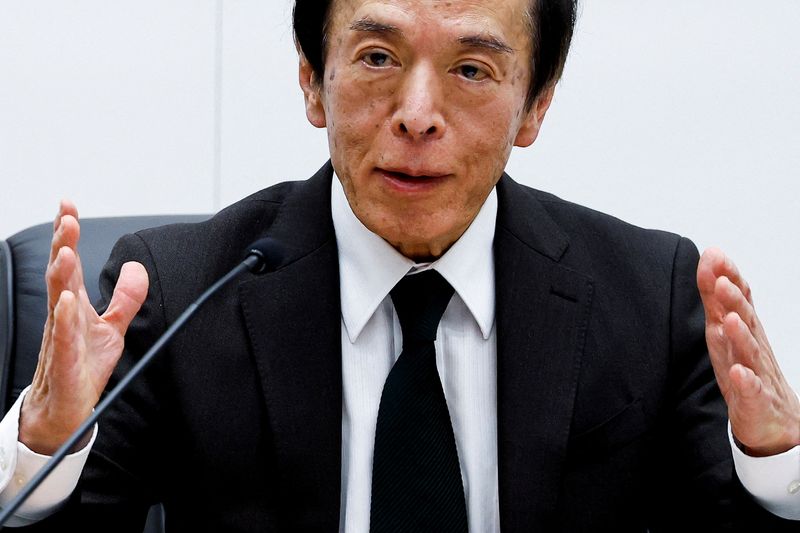By Leika Kihara
TOKYO (Reuters) -Bank of Japan Governor Kazuo Ueda said the central bank must consider whittling down stimulus further if inflation continues to accelerate, signalling the chance of another interest rate hike later this year in line with market bets.
Speaking in parliament, Ueda said the central bank must maintain ultra-loose monetary policy for the time being since trend inflation has yet to reach its 2% target.
But he said solid pay hikes seen so far in this year's wage negotiations will likely boost household income and consumption, offering an upbeat view on Japan's economic outlook.
Under the BOJ's baseline scenario, trend inflation will converge towards 2% in the next 1-1/2 to two years, Ueda said.
"If economic and price conditions move in line with our current projections, trend inflation will gradually accelerate. If so, we must consider reducing the degree of stimulus," Ueda said on Tuesday.
In current forecasts made in January, the BOJ expects inflation, as measured by an index excluding fresh food and fuel, to hit 1.9% in both fiscal 2024 and 2025. The central bank will review these forecasts at its next meeting on April 25-26.
In March, the BOJ ended eight years of negative interest rates and other remnants of its unorthodox policy, making a historic shift away from its focus on reviving growth and quashing deflation with decades of massive monetary stimulus.
Markets are on the lookout for clues on from Ueda how soon the central bank will next raise interest rates.
A Reuters poll taken shortly after the March move showed more than half of economists expect another rate hike this year, with October-December the most popular bet on the timing.
If wages do not rise much or external shocks hit Japan's economy, the BOJ may scale back stimulus at a slower pace or hold off on reducing monetary support, Ueda said.

By contrast, the BOJ may scale down stimulus faster than expected if wages and inflation overshoot forecasts, he said.
"One factor we'll look at is whether pay hikes offered by firms in annual wage negotiations would appear in actual data," Ueda said. "We'll also check at each policy meeting whether rising wages will be reflected in services prices."